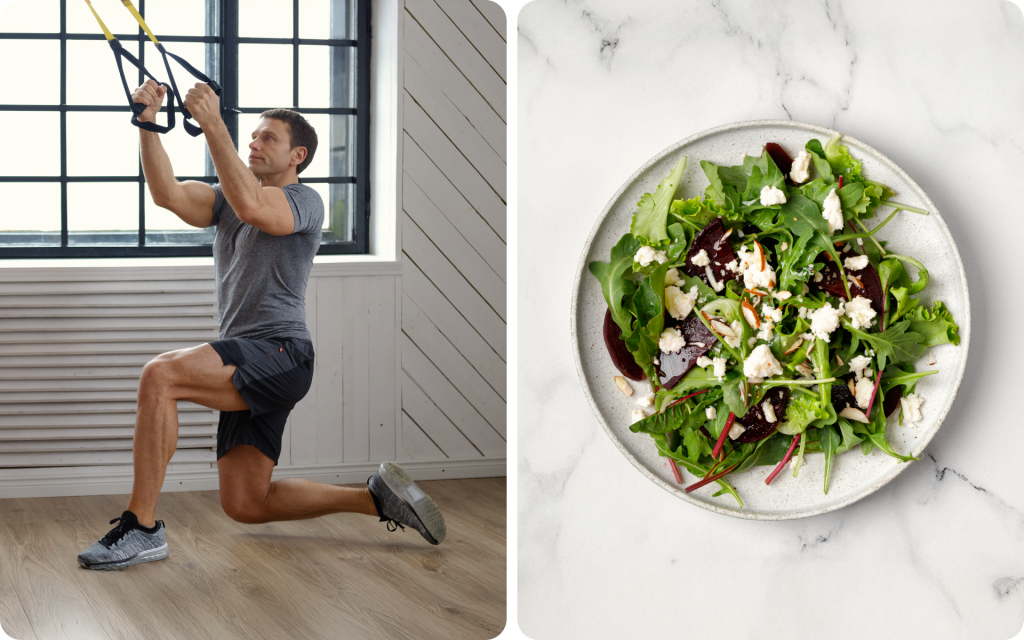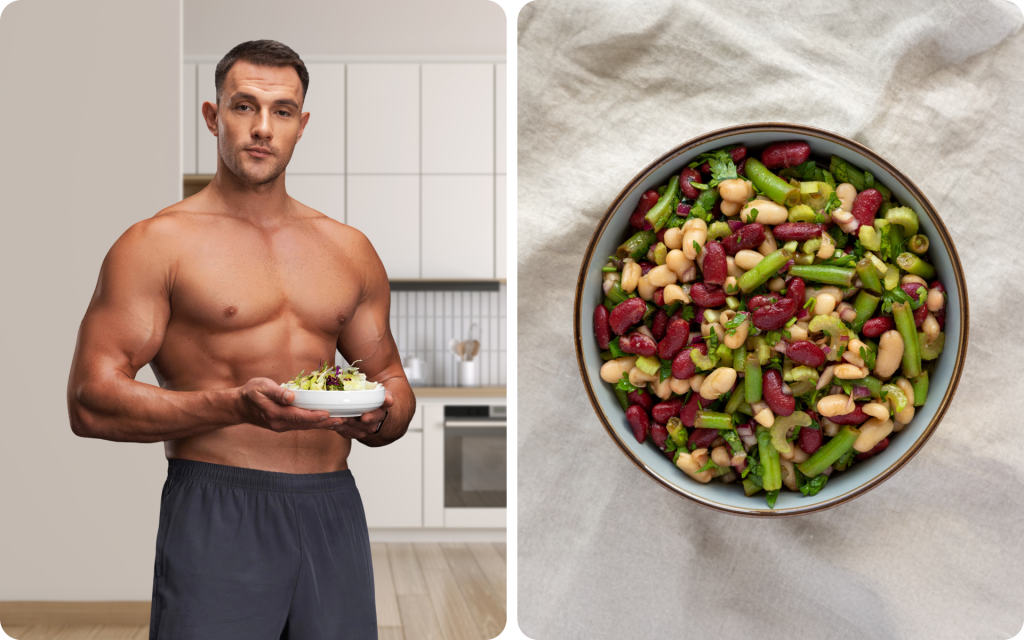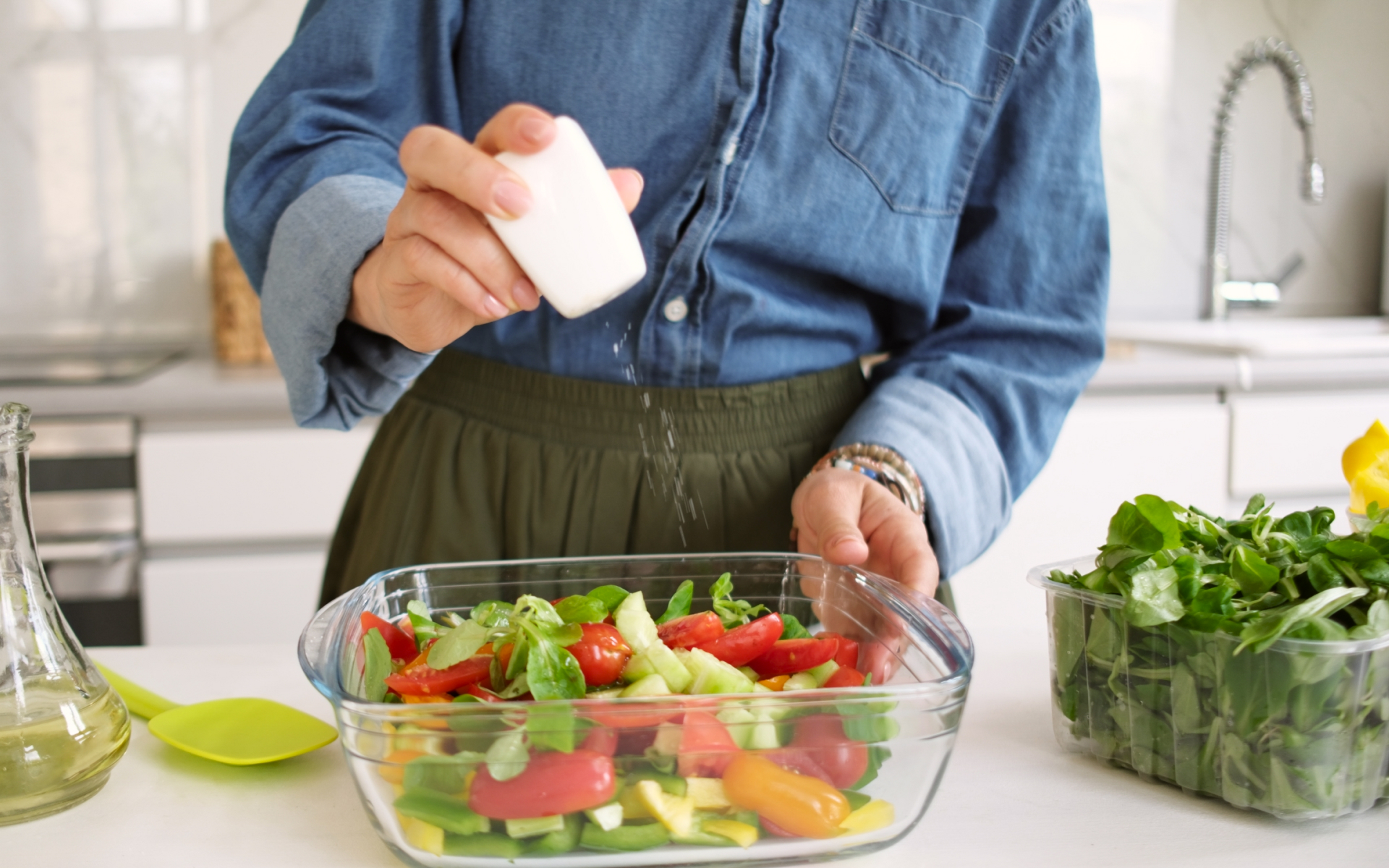As a beginner, the thought of fasting alone may seem an impossible thing to do. Even when you’re aware of the benefits that may come with it, you need to be disciplined and committed to the practice of fasting if you’re to gain those potential benefits. This fasting for beginners guide will help you understand everything about fasting and how to start, even when it seems difficult.
Perhaps what comes to your mind is a long fast where you stay without food for over 24 hours. Of course, that is a routine some people follow, but it’s not good for beginners. If you’ve never fasted, then you’ll need to teach your body gradually by engaging in short fasting periods until your body adapts well, and then you can increase depending on what you want to achieve.
Before we go deeper, it’s important to understand that fasting is believed to have several potential benefits for your health. Studies have suggested that fasting can be helpful for reducing body weight, lowering blood pressure, lowering LDL or bad cholesterol, lowering blood sugar levels, and reducing inflammation (4). However, fasting doesn’t work for everyone, and that’s okay.
What Is Effective Fasting for Beginners?
An effective fasting regimen for a beginner is one that’s easy to implement. Not all the different types of fasting are suitable and effective for beginners as some are more suitable for those who regularly engage in fasting. In this case, an effective fasting routine should be one that includes short periods of fasting and eating, as in intermittent fasting.
As a beginner, intermittent fasting (IF) is the way to start. This is where you regularly alternate between periods of eating and fasting. Examples of intermittent fasting methods that may be suitable for beginners include the following:
- 16/8 Method – also known as time-restricted eating, this method involves fasting for 16 hours each day (generally overnight) and eating only during an 8-hour window. You don’t have to start with 16 hours right away – you can fast for 12-14 hours in the beginning, and work your way up to 16 or whatever your goal is. Some people vary their fasting duration from day to day depending on their schedule or how they feel.
- 5:2 Diet – this is where you eat normally on 5 days of the week and restrict your calorie intake on the remaining 2 days to around 500-600 calories. Your fasting (calorie-restricted) days should be non-consecutive.
- One Meal A Day (OMAD) – is a type of intermittent fasting where you eat only one meal in a day. This is like a more intense version of time-restricted eating and it is something you would want to work up to, if you decide to try it.
These are just some examples of fasting methods that may be suitable and effective for beginners and more experienced fasters. Of course, there are others such as water or juice fasting, alternate-day fasting, and the warrior diet. Always talk to your healthcare provider before you attempt any new fasting regimen. If you’re curious about beginner fasting schedule, check out our earlier article
Is Fasting Actually Healthy?
That depends. Fasting can contribute to improved health for some people through weight loss and associated benefits such as improved heart health markers and blood sugar levels. Studies have suggested that restricting calorie intake daily through intermittent fasting can be helpful for losing some pounds of body weight (5).
While fasting is safe for most healthy individuals, particularly those who want to lose some weight, control blood sugar levels, or improve heart health, it’s not suitable for everyone. Fasting can be dangerous for individuals who are breastfeeding/pregnant, children and adolescents, and those with eating disorders or diabetes among other health conditions. Always talk to your healthcare provider before you try any fasting regimen or make major changes to your diet.
If you wish to free yourself from all the extra pounds that have been weighing you down for way too long, start using the BetterMe: Health Coaching app and overhaul your entire life!
How Many Hours of Fasting Is Good for Beginners?
12 hours of fasting can be a good place to start for beginners (1). If you’re starting out, you can safely and comfortably start with 12 hours. Most of the hours that you will be fasting will actually be during your sleep hours. After that, you can then work your way up to 16:8 intermittent fasting methods where you fast for 16 hours and eat during the remaining 8-hour window.
Read more: 6 Foods to Avoid When Breaking a Fast and Why
What Is the Correct Way of Fasting?
The correct way of fasting depends on your goal, your individual needs, the type of fasting, and your experience level. It also involves eating nutrient-dense foods and balanced meals during the eating window without binge eating. The correct way of eating should also be gradual and gentle on beginners and should be mindful of meeting nutritional needs. In addition, it should incorporate drinks that don’t break a fast for hydration purposes during the fasting windows. Discover the science behind how to prepare for a fast in one of our earlier articles.
What Is a Healthy Fasting Routine?
A healthy fasting routine is one that safely helps you achieve your physical, emotional, and mental well-being while meeting your personal health goals. The key principles of a healthy fasting routine include the following:
Gradual Approach
Fasting should be gradual. For example, beginners need to start slow as they’ve not yet adapted to fasting. A gradual approach is one that introduces fasting gently without jumping into extreme fasting or long fasts. It starts with a mild fasting window such as alternating between fasting and eating hours each day, as in the case of time-restricted eating.
Appropriate Fasting Method
Not every fasting method is the best or suitable for everyone. The method or type you chose should depend on personal health and goals. If you’re a beginner, you need to check for the right fasting method that is appropriate for beginners. Some of the common methods include:
- 16:8 Method – this is where you fast for 16 hours and eat during an 8-hour window.
- 12:12 Method – fasting for 12 hours and eating during the remaining 12-hour window. It can be good for beginners or those who are trying fasting for the first time.
- 5:2 Method – this is where you eat normally on 5 days of the week and on the remaining 2 (non-consecutive) days, you restrict your calorie intake to about 500-600 calories. This can also be doable for beginners.
- OMAD (One Meal A Day) – this is where you eat only one large meal a day. You must ensure that it’s nutrient-dense and provides all the nutrients that your body needs. This is a little bit more advanced.
Prioritizes Nutrient-Dense Foods
A healthy fasting routine should focus on a balanced diet that is made up of foods such as lean proteins, healthy fats, whole grains, fruits, and vegetables. It should avoid ultra-processed and sugary foods and drinks that are high in calories. Dive deeper into the beginner intermittent fasting meal plan with our dedicated article.
Hydration
Fasting should also incorporate hydration methods and in most cases, water is a good way to go. Keeping hydrated during fasting helps in preventing dizziness, fatigue, and headaches.
As previously mentioned, intermittent fasting such as 16:8 is a good option for beginners as it incorporates eating and fasting windows. An example of a healthy routine of this sort is as follows:
| Time | Hydration |
|---|---|
| 7:00 am | Water or tea |
| 8:00 am | Light activity such as taking a walk or simple yoga exercise |
| 12:00 pm | First balanced and nutrient-dense meal |
| 4:00 pm | A small snack of fruit and nuts |
| 7:30 pm | Light but filling nutrient-dense dinner |
| 8:00 pm | Start fasting |
What Not to Do when Fasting
The aim of fasting is to get the results. In most cases, the goal is to lose weight and in some, it’s to improve heart health and/or blood sugar, which typically go hand-in-hand with weight loss. Therefore, regardless of your goal, you need to understand that there are some things you need to observe and not do if you want to achieve all the benefits you want, such as:
- Don’t Consume Calories
When fasting, you shouldn’t consume foods that have calories as this can break your fast. You may only consume zero-calorie drinks such as unsweetened tea, black coffee, and plain water. This also depends on the type of fasting. For example, if you’re on a water-only fast, then you may only consume water and nothing else.
- You Shouldn’t Neglect Hydration
While fasting, you need to keep hydrated. Even with strict fasting, you need to drink some water for hydration purposes. Dehydration may cause fatigue, dizziness, and headaches.
- Don’t Exercise Too Hard
Exercise can be beneficial while fasting as it promotes fat oxidation. However, you shouldn’t push yourself too hard as intense workouts while fasting may cause fatigue and dizziness and could even cause you to faint. Therefore, you need to moderate your exercises and ensure they’re light and safe.
- Don’t Ignore Body Warnings
As you fast, you need to listen to your body. Dizziness, fatigue, headaches, and heart palpitations are some signs you shouldn’t ignore. If at any point you have these signs and feel unwell, you must break your fast and seek professional help.
Whether you’re a workout beast or just a beginner making your first foray into the world of fitness and dieting – BetterMe has a lot to offer to both newbies and experts! Install the app and experience the versatility first-hand!
- Avoid Some Medications
Some medications aren’t good on an empty stomach. Some people recommend you take them after meals as they may not become effective without food and some can even cause irritation to the stomach. If you’re taking medications that require food, make sure you align your eating window with when you need to take them. If that isn’t possible, then fasting may not be safe for you.
- Don’t Fast Without A Plan
You should fast when you have a plan and a goal to achieve and not just because it’s a trend. Therefore, you need to define your goals so you can monitor your progress while fasting. In addition, you should consider the type of fasting suitable for your needs.
- Don’t Overeat During the Eating Window
With intermittent fasting, you have an eating window where you alternate between fasting and eating hours. During your eating hours, don’t indulge in heavy eating more than you usually do as it may negate the benefits you would otherwise achieve. Instead, focus on eating nutrient-dense foods and balanced meals in the right proportions.
Read more: Fasting Until 4pm: Pros, Cons, And How To
What Do You Lose First When Fasting?
When you fast, your body uses stored glycogen for energy until it depletes it before resorting to breaking down fats. So, the first thing that you lose is the glycogen that is stored in the liver and this happens within the first 24 hours of fasting. There is water associated with that glycogen, which you will also eliminate. This can sometimes move the scale, but it isn’t fat loss and will be replenished when you start to eat again.
No, coffee doesn’t break a fast if it’s plain black coffee. This is because it doesn’t contain a meaningful amount of calories and hence is one of the drinks that won’t break a fast. It’s also important to understand that black coffee is considered a zero-calorie drink, but it depends on what you add to it. Sugar, milk, or cream added to coffee can break a fast. Fasting can help you lose body fat, but not fat that is localized in a specific part of the body. This is because it isn’t possible to control where the body will burn fat. Studies have shown that spot reduction of fat is a myth and so your body burns fat in all parts when you fast (3). Fasting will help you lose body fat over time by reducing your overall calorie intake. Yes, you can exercise while fasting if you do it safely. It also depends on the type of fasting. Studies have shown that exercising while fasting helps increase fat oxidation (2). Therefore, if you’re healthy, there are no risks associated with exercising during fasting, but you need to listen to your body while doing it. Avoid high-intensity workouts when you’re fasting. Yes, you can chew gum while fasting if the type of gum doesn’t break your fast. Sugar-free gum with zero calories is okay, but gums that contain sugar and calories can break a fast. Therefore, whether you can chew gum or not while fasting depends on the type of gum you want to chew. Frequently Asked Questions
Does coffee break a fast?
Will fasting help you lose your belly?
Can you exercise while fasting?
Can you chew gum while fasting?
The Bottom Line
People fast for different reasons – some fast to lose weight, some do it to improve their heart health, and some try fasting to control their blood sugar levels and blood pressure. Regardless of your goal, it’s important to always do it right.
Before fasting, you need to consider your health and whether or not fasting can give you the benefits that you want. In addition, you need to go with the type of fasting that’s suitable for your body and one that can give you the benefits you want without causing any negative health consequences. Always talk to your healthcare provider to get individualized advice.
DISCLAIMER:
This article is intended for general informational purposes only and does not serve to address individual circumstances. It is not a substitute for professional advice or help and should not be relied on for making any kind of decision-making. Any action taken as a direct or indirect result of the information in this article is entirely at your own risk and is your sole responsibility.
BetterMe, its content staff, and its medical advisors accept no responsibility for inaccuracies, errors, misstatements, inconsistencies, or omissions and specifically disclaim any liability, loss or risk, personal, professional or otherwise, which may be incurred as a consequence, directly or indirectly, of the use and/or application of any content.
You should always seek the advice of your physician or other qualified health provider with any questions you may have regarding a medical condition or your specific situation. Never disregard professional medical advice or delay seeking it because of BetterMe content. If you suspect or think you may have a medical emergency, call your doctor.
SOURCES:
- A Beginner’s Guide to Intermittent Fasting (2019, sph.umich.edu).
- Exercise Training and Fasting: Current Insights (2020, pmc.ncbi.nlm.nih.gov).
- Spot reduction: why targeting weight loss to a specific area is a myth (2023, sydney.edu.au).
- The Benefits of Fasting to Improve Health Conditions and to Prevent Cardiovascular Disease (2020, researchgate.net).
- To Fast or Not to Fast (2019, newsinhealth.nih.gov)













